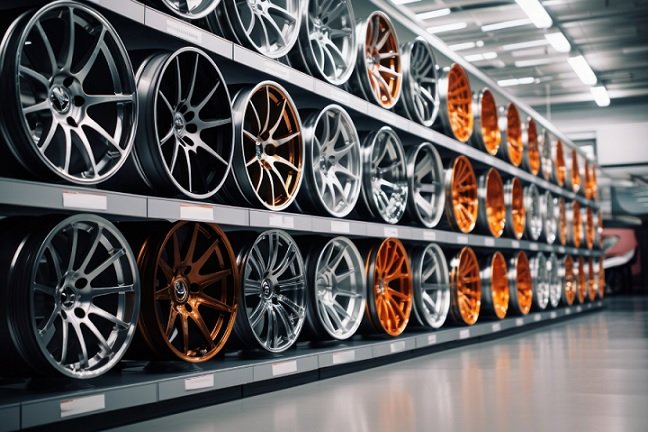Buying a car is one of the biggest financial commitments most people make, yet the dealership price tag tells only part of the story. Beyond the initial purchase, there are a number of additional expenses that often go unnoticed until they begin to pile up.
These hidden costs can turn car ownership into a much larger financial responsibility than expected. Understanding these expenses in advance not only helps you budget realistically but also allows you to take steps to reduce unnecessary outgoings.
Let us take a closer look at the various hidden costs of car ownership and how you can calculate and manage them more effectively.
What are the Different Hidden Costs of Car Ownership?
The following are the different hidden costs of car ownership:
- Depreciation Costs
Purchasing a car should not be mistaken for an investment. Unlike assets that appreciate, a car’s value begins to fall the moment you take it out of the showroom. In fact, it instantly loses about 10% of its price once driven away. The decline continues sharply in the first year, with most vehicles shedding around 30 to 40% of their value during this period.
- Fuel Expenses
Fuel remains one of the most constant and unavoidable costs for any car owner. Whether you drive a petrol or diesel vehicle, the ever-increasing fuel prices in India can make a serious dent in your budget. In many cases, the monthly spend on fuel, particularly petrol, can almost match the cost of a car’s EMI, making it one of the most significant recurring expenses of ownership.
- Emergency Roadside Assistance
Although not mandatory, many drivers choose to subscribe to roadside assistance programmes for added peace of mind. Whether provided by the car manufacturer or third-party services, these schemes cover breakdowns, towing, and emergency repairs. While useful in unforeseen circumstances, they involve annual membership fees that need to be factored into your budget.
- Toll Charges
For those who regularly commute via highways, expressways, or toll bridges, toll fees are another ongoing cost. With many toll booths using automatic deduction systems, drivers may not always track how much is being spent. However, frequent use of tolled routes can result in a noticeable increase in monthly travel expenses.
- Insurance Premiums and Add-ons
Car insurance is a legal requirement, yet many buyers find the actual cost higher than expected. Premiums are influenced by factors such as your driving history, where you live, and the type of car you own.
Optional add-ons, including zero-depreciation or engine protection, can increase the premium further. However, insurers also reward safe drivers with benefits like the no-claim bonus in car insurance, which offers a discount on renewal premiums if you avoid making claims during the policy year.
- Servicing and Maintenance
Every car requires regular servicing to remain roadworthy, and this inevitably adds to the total cost of ownership. Routine checks, oil changes, and replacement of parts are standard, but costs can rise sharply if you encounter accidental damage or mechanical issues. Although today’s cars are built with durable designs, a damaged body panel or a critical engine repair can set you back by a substantial amount.
- Taxes and RTO Charges
All new cars in India attract mandatory levies such as registration fees, road tax, and other state-specific charges. These costs vary considerably from one region to another, depending on factors such as the type of vehicle, fuel category, and engine size. For instance, states like Karnataka and Maharashtra impose higher fees on large-capacity or premium cars, while areas such as Delhi NCR also include additional green or pollution taxes.
- Loan Interest on EMIs
Car finance through EMIs makes vehicle ownership more accessible, but it also adds another hidden expense in the form of interest payments. Over the loan tenure, the total interest paid can be quite significant, effectively raising the overall cost of the vehicle well beyond its purchase price.
How to Calculate the Total Cost of Car Ownership?
Owning a car often proves more expensive than just paying the sticker price at the dealership. Taking a structured approach helps buyers plan better and make wiser financial decisions over time.
You can check the insurance group of any car in the UK for free by running a detailed number plate check. This will show the insurance group, and the higher the group, the more expensive the insurance is likely to be. The check will also tell you if the car has been stolen, written off, or still has outstanding finance.
Total Cost of Ownership (TCO) Formula
TCO = Initial Purchase Price + Registration & Taxes + Fuel Expenses + Insurance Premiums + Servicing & Maintenance + Repairs + Loan Interest + Depreciation + Resale or Disposal Costs
Several trusted websites now offer automated tools that make it easier to estimate the Total Cost of Ownership (TCO) of a car. To use such a calculator, you typically need to follow these steps:
Step 1: Choose the car brand from the drop-down menu.
Step 2: Select the specific model from the options provided.
Step 3: Pick the variant that matches your vehicle.
Step 4: Enter your location or state.
Step 5: Indicate the average annual distance you expect to drive.
Once all the details are filled in, simply click the calculate button, and the tool will generate an estimated TCO for your car.
What are the Ways to Save on the Hidden Costs of Car Ownership?
The following are the different ways through which you can save on these hidden expenses of your car:
- Keep Up with Routine Maintenance
Sticking to a regular servicing schedule helps spot minor issues before they become costly repairs. Simple measures such as timely oil changes, tyre checks, and following a maintenance checklist can significantly extend your car’s life and reduce long-term expenses. Preventive care is always cheaper than unexpected breakdowns.
- Choose Wisely at the Time of Purchase
Every car is different when it comes to long-term running costs. While some models are affordable upfront, they may prove expensive to maintain later. Focusing on vehicles with a strong reputation for durability, lower repair needs, and good fuel efficiency can make a big difference. Checking the expected resale value before buying also ensures you avoid unnecessary losses when it is time to upgrade.
- Compare Insurance Options
Insurance is unavoidable, but you can reduce costs by comparing providers carefully. Using a car insurance premium calculator enables you to estimate and compare policies more accurately before committing. By checking out various insurers, you can find a plan that offers the right level of protection without overspending.
- Adopt Smarter Driving Habits
Aggressive driving, such as hard acceleration and sudden braking, not only consumes more fuel but also places extra strain on your vehicle. Practising smoother driving techniques helps improve mileage, reduces wear and tear, and saves money on fuel over time.
Car ownership brings convenience and independence, but it also carries a range of hidden costs that go far beyond the showroom price. By understanding these expenses in advance, you can take control of your finances and avoid unpleasant surprises later.
Moreover, the good news is that you can actively reduce many of these costs. By planning carefully and making informed decisions, you not only protect your car but also ensure it remains a cost-effective asset throughout its life.



